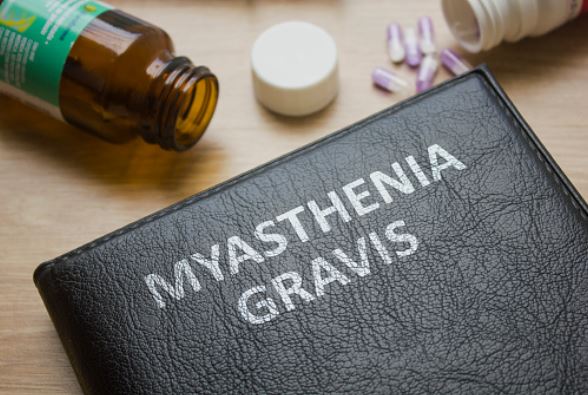
June is Myasthenia Gravis Awareness Month. Since this is such a rare disease and not many know about it, we would like to take this opportunity to help raise awareness and get the word out.
In the United States, it is estimated that 14 to 20 in 100,000 people have Myasthenia Gravis, making that approximately 36,000 to 60,000 cases. However, as this disease often remains underdiagnosed, the prevalence is most likely higher.
What is Myasthenia Gravis Disease?
It is a rare, chronic, autoimmune neuromuscular disorder causing extreme muscle weakness and can impact a person’s ability to see, smile, walk, talk and breathe. In Myasthenia Gravis, the body’s immune system attacks the connection between the nerves and the muscles, limiting the ability of the brain to control muscle movement.
With current therapies, however, most cases of Myasthenia Gravis are not as “grave” as the name implies. In fact, most individuals with Myasthenia Gravis have a normal life expectancy.
Facts About Myasthenia Gravis Disease:
- Myasthenia Gravis can occur regardless of race, gender or age.
- Myasthenia Gravis is not thought to be directly inherited nor is it contagious.
- Myasthenia Gravis, while not thought to be inherited, may occur in more than one member of the same family.
- Myasthenia Gravis is not transmitted through any form of contact.
- There is no known cure for Myasthenia Gravis, but there are many effective treatments that can make managing life easier for those who are affected.
What are the symptoms?
- Muscle weakness
- Drooping eyelids
- Slurred speech
- Limited facial expressions
- Weakness in neck, arm and legs
Learn more about Myasthenia Gravis: Learn More
Hear some personal stories from those who have been diagnosed with Myasthenia Gravis:
Treatment for Myasthenia Gravis:
- Thymectomy is the surgical removal of the thymus gland, which is often abnormal in individuals with Myasthenia Gravis. This surgery may reduce symptoms and may cure some by re-balancing the immune system.
- Plasmapheresis is a procedure in which serum containing the abnormal antibodies is removed from the blood while cells are replaced, and high dose intravenous immune globulin, which temporarily modifies the immune system by infusing antibodies from donated blood.
- Medications can also be used to treat the disorder, but must be closely monitored by a physician because they may cause major side effects.
A neurologist will determine which treatment option is best for each patient, by individually assessing the severity of weakness, which muscles are affected and the individual’s age and other associated medical issues.
If you or someone you know is experiencing sudden or gradually increasing symptoms of muscle weakness, it could be a sign of Myasthenia Gravis or another serious condition. Talk to your doctor if you are short of breath, have difficulty smiling, talking or swallowing, or cannot walk any distance without having to rest.
Need to talk to a doctor? Request an appointment today: Contact Us
Help Spread Myasthenia Gravis Awareness With Socially Distant Activities!
Each June, the Myasthenia Gravis community comes together to boost efforts around fundraising, research and advocacy. This year, the community is encouraged to practice socially distant awareness activities and to share the activities and photos using the link below.
Find more ways to get involved: Learn More

